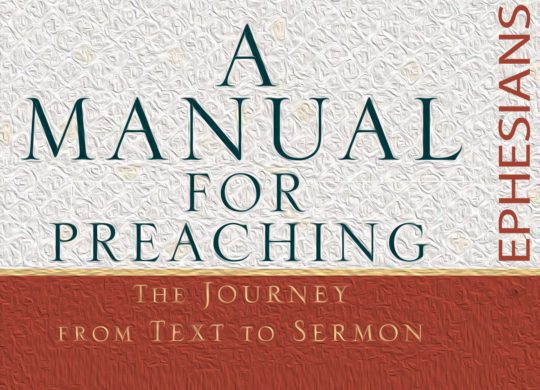Ephesians 5:1–20

Here we are explicitly told what the walk of believers entails: the walk “in love,” the imitation of God and of Christ, who loved with a love beyond compare. Having Jesus Christ as both the ground and model of love (Eph 5:2), such self-sacrificial love is to be the mark of believers, the “beloved” children of God (5:1).
Imitation of God and Christ’s selfless love (divine love).
After this grand model of love has been introduced, Paul turns to contrast the behavior of believers and unbelievers (5:3–20). The illegitimate and illicit love of the world is the point of difference, as well as the self-indulgence of unbelievers (“greed,” 5:3). With “immorality” heading the list, it appears that the rest of the vices are colored by this sense of sexual misconduct. Such attitudes and actions are entirely antithetical to God and to the imitation of God/Christ who loved with a perfect love. Therefore, these vices are not even to be named among Christians (5:3).
In all likelihood, the kinds of speech indicated in 5:4 are also related to “immorality” that head the vice list in 5:3: thus, immoral utterances. Abstaining from these kinds of immoral speech, believers are to engage in thanksgiving. Unlike self-satisfying unbelievers, believers are conscious of the self-giving of God, his goodness and generosity in Christ. So, rather than engage in obscenities and vulgarities, they express thanks to their Creator and Redeemer, the ultimate source of all their blessings. Because Paul is dealing with the character and lifestyle of unbelievers (as opposed to that of the “saints,” 5:3), 5:5 is a reaffirmation that these unbelievers have no inheritance (i.e., rewards) in the kingdom of Christ and God, a danger that could also affect believers, incurring the wrath of God (5:6; though not loss of salvation, of course).
Imitation of God and Christ’s selfless love (divine love). Abandonment of sexual immorality (worldly love) and avoiding the anger of God.
No longer “sons of disobedience” (5:6), believers are to live/walk as “children of light” (5:8): children characterized by light in the Lord, since they imitate God who is light. The fruit produced by believers—goodness, righteousness, and truth—reflects God himself; this essentially is an exhortation for them to be godly (5:9), that they may please the Lord (5:10). The ethical demands of a believer’s lifestyle are clear. They, living in the realm of light, in Christ, live to a different code, follow an exalted standard, and thus influence a dark world.
Imitation of God and Christ’s selfless love (divine love). Abandonment of sexual immorality (worldly love) and avoiding the anger of God, instead walking as light and winning the pleasure of God.
There are three contrasts that dominate 5:15–20, each employing “not …, but …”: unwise vs. wise walking (5:15), becoming foolish vs. understanding the Lord’s will (5:17), and getting drunk with wine vs. being filled by the Spirit (5:18)—the last evidenced by worship (God-ward) and submission (man-ward; 5:21–6:9). The three contrasts are likely to be parallel.
Ephesians 5:18–21 is a single sentence that has five anarthrous (i.e., without articles) participles modifying the main imperative verb “be filled” (5:18): “speaking,” “singing,” “making melody,” “giving thanks,” and “submitting.” They are likely to be participles of means, the manner in which the imperative of 5:18 regarding filling by the Holy Spirit may be actualized—and that is by “speaking,” “singing,” “making melody,” “giving thanks” (these four may conveniently be characterized as elements of worship) and “submitting” (dealt with in the next pericope). Thus, worship and submission, encompassing the exhortations of the five participles and describing the manifestation of “filling” by the Spirit, are appropriate engagements for a body that is “a holy temple in the Lord” and “a dwelling of God in the Spirit” (2:21–22). What believers are being filled with is the fullness of God in Christ (mediated) by the Spirit, a state of being under the Spirit’s control.
Imitation of God and Christ’s selfless love (divine love). Abandonment of sexual immorality (worldly love) and avoiding the anger of God, instead walking as light and winning the pleasure of God—a wise and well-lit walk that is under the Spirit’s control, immediately manifesting in worship.
A shorter version:
The imitation of God and Christ’s selfless love call for abandonment of sexual immorality, and the adoption of a wise and worshipful lifestyle.












 Abe Kuruvilla is the Carl E. Bates Professor of Christian Preaching at The Southern Baptist Theological Seminary (Louisville, KY), and a dermatologist in private practice. His passion is to explore, explain, and exemplify preaching.
Abe Kuruvilla is the Carl E. Bates Professor of Christian Preaching at The Southern Baptist Theological Seminary (Louisville, KY), and a dermatologist in private practice. His passion is to explore, explain, and exemplify preaching.